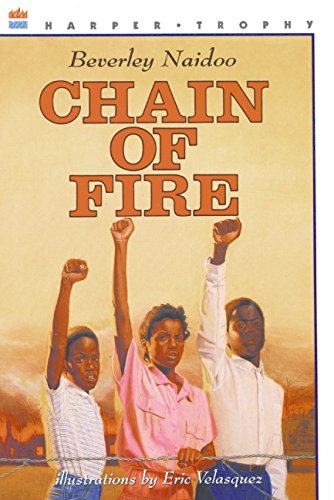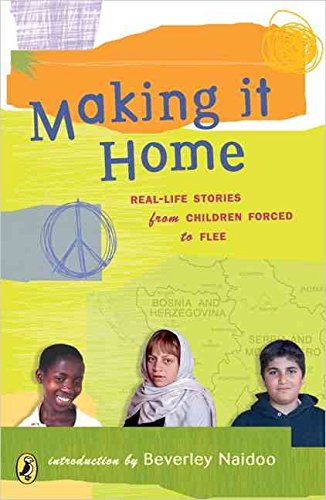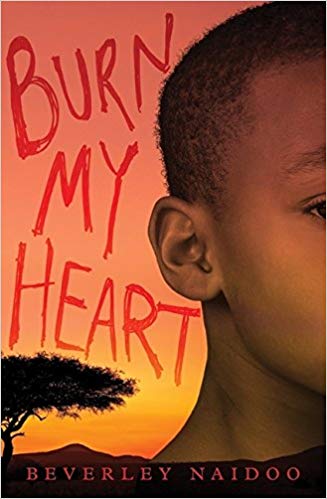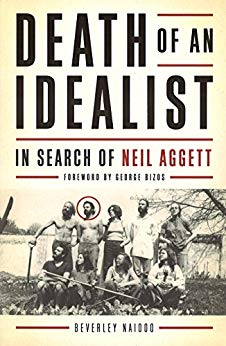Background
Beverley Naidoo was born on March 21, 1943, in Johannesburg, Gauteng, South Africa. She is a daughter of Ralph Trewhela, a composer and music copyright manager, and Evelyn Trewhela (maiden name Levison), a broadcaster and theater critic.

1965
Beverley Naidoo on March 1965.
2013
Beverley Naidoo surrounded by the participants of ‘Nelson Mandela Tribute: Long Walk to Freedom’, an event celebrating the 27 years he was imprisoned, at the South Bank centre in London. Photo by Ian West.
2016
19 Princelet St, Spitalfields, London E1 6QH, United Kingdom
Beverley Naidoo with children from Grafton Primary School in the old synagogue of the Museum of Immigration and Diversity, Spitalfields, London.
2018
Beverley Naidoo with the winners of the 2018 Tower Hamlets Creative Writing Competition.
2018
Beverley Naidoo in a company of publisher Delaram Ghanimifard (left) and illustrator Ehsan Abdollahi (right).
1 Jan Smuts Ave, Johannesburg, 2000, South Africa
The University of Witwatersrand where Beverley Naidoo earned her Bachelor of Arts in 1963.
Heslington, York YO10 5DD, United Kingdom
Heslington Hall of the University of York where Beverley Naidoo obtained her second Bachelor of Arts degree and the Certificate of Education.
University of Southampton, Southampton, United Kingdom
One of the buildings of the University of Southampton where Beverley Naidoo received a Ph. D. degree in 1991.
Beverley Naidoo
Beverley Naidoo with Marjan Vafaeian who illustrated her 2019 book 'Cinderella of the Nile.'
Beverley Naidoo signing books for her young readers.
Beverley Naidoo interacts with youngsters.
Beverley Naidoo speaking for children.
Beverley Naidoo lecturing for children.















(The South African government is forcing Naledi and the ot...)
The South African government is forcing Naledi and the other villagers to move to a new location: a "homeland" of iron huts and barren soil. And it seems that no one is willing to resist.
http://www.amazon.com/gp/product/0064404684/?tag=2022091-20
1989

(In this inspiring collection, children living all over th...)
In this inspiring collection, children living all over the world speak about being forced to flee their homes as refugees.
http://www.amazon.com/gp/product/B0108DPKBW/?tag=2022091-20
2004

(Beverley Naidoo explores the fragile bonds of friendship ...)
Beverley Naidoo explores the fragile bonds of friendship in this stunning novel about prejudice, fear, and the circumstances that bring people together – and tear them apart.
https://www.amazon.com/Burn-My-Heart-Beverley-Naidoo/dp/0061432970/?tag=2022091-20
2007

(The book is the biography of Neil Aggett, the only white ...)
The book is the biography of Neil Aggett, the only white person to die while being held in custody by South Africa’s apartheid security police.
https://www.amazon.com/Death-Idealist-Search-Neil-Aggett-ebook/dp/B009CGYFOU/?tag=2022091-20
2012
Beverley Naidoo was born on March 21, 1943, in Johannesburg, Gauteng, South Africa. She is a daughter of Ralph Trewhela, a composer and music copyright manager, and Evelyn Trewhela (maiden name Levison), a broadcaster and theater critic.
Beverley Naidoo was born into a comfortable lifestyle as a member of an upper-middle-class family in Johannesburg, South Africa. She grew up in a world of privilege where whites patronizingly referred to African males, of any age, as ‘boys’ and females as ‘girls.’ Naidoo was raised by a black nanny whom she knew only as ‘Mary.’ As a child, Naidoo loved reading stories.
Following her high school graduation, Beverley Naidoo attended the University of Witwatersrand, earning her Bachelor of Arts in 1963. But it was what she learned outside the classroom that proved to be far more important than anything she learned in it.
In 1965, Naidoo moved to England to study at the University of York, supporting herself for a time by teaching at school. She graduated in two years with her second Bachelor of Arts degree with honors, and in 1968, she received the Certificate of Education.
In 1991, Naidoo obtained a Doctor of Philosophy degree from the University of Southampton.
Beverley Naidoo always resisted her mother’s suggestion that she should become a teacher. However, after having seen and experienced for herself the impact of education as a tool in the fight against apartheid, she pursued a career in the classroom.
Beginning in 1969, Naidoo had taught primary and secondary school in London for the next decade. She also became involved with an anti-apartheid group and began looking for ways to educate young people about the dangers of racism in general and of South African apartheid system in particular. Almost as important, the author continued to expand her own horizons by reading about what she terms “the reality [that] she had left behind” in South Africa.
During the early 1980s, Naidoo initiated research for the Education Group of the British Defence and Aid Fund for Southern Africa (later also known as International Defence and Aid Fund), an activist organization that aided victims of apartheid and worked to raise the world’s awareness of human rights abuses in South Africa. Naidoo’s efforts helped make people aware of the alarming shortage of suitable teaching materials about apartheid and resulted in 1985 in the publication of a critical bibliographical study called ‘Censoring Reality: An Examination of Books on South Africa’, which the author edited.
When the Education Group decided to commission a work of “informed and helpful fiction” on apartheid, Naidoo volunteered to write it. The fruit of the author’s efforts was a 1985 juvenile novella called ‘Journey to Jo'burg: A South African Story.’ The volume received mixed reviews from critics. Whatever they thought of the quality of Naidoo’s writing, critics and readers alike agreed that her subject material was as powerful as it was shocking.
Encouraged by the success of her first book, Naidoo pressed ahead in her literary efforts. She edited an anthology of poems, short stories, and extracts for young people called Free As I Know. In 1989, Naidoo produced a sequel to Journey to Jo’burg. The book was an adolescent novel called ‘Chain of Fire.’ Many reviewers praised the book.
Naidoo’s next book, ‘Through Whose Eyes? Exploring Racism’, appeared in 1992. It was a collection of articles by English schoolchildren who were writing about the literature they had read and about their own interactions with black visitors to their mostly white school. Naidoo also served as editor of the volume. In a couple of years, a children’s book titled ‘Letang’s New Friend’ was issued.
In the wake of apartheid’s demise, Beverley Naidoo has begun to explore new themes as she has broadened her own horizons. The writer turned her attention to more general concerns, like the plight of homeless street children and the issue of racism in the United Kingdom. So, Naidoo’s next book for young readers was a 1995 volume ‘No Turning Back: A Novel of South Africa’, the story about the adventures of a twelve-year-old African boy named Sipho who fleed an abusive stepfather and ran away to a new life on the mean streets of Johannesburg.
In the post-apartheid era, Beverley Naidoo has also persisted in her struggle for human rights. She has delivered lectures and held workshops on anti-racist and multicultural themes. She has also conducted creative writing seminars. The author pursued her writing career as well and issued several picture books for children at the beginning of 2000s, including ‘Baba's Gift’, collaboration with her daughter, Maya Naidoo, and ‘The Great Tug of War, and Other Stories’ among other publications.
The latest publications of Naidoo include a 2012 biography of the trade unionist Neil Aggett ‘Death of An Idealist’, ‘Who is King: Ten Magical Stories from Africa’ of 2015, and a 2019 volume ‘Cinderella of the Nile’
Beverley Naidoo’s series of groundbreaking books intended to educate young people on the evils of racism in her homeland as well as her picture books for children are widely recognized.
Naidoo’s debut book of fiction, ‘Journey to Jo'burg: A South African Story’ helped to draw the world’s attention to the anti-apartheid struggle. Although it was banned by the South African government until 1991, the volume won several children’s book awards in the United States and the United Kingdom, including Other Award, Children’s Books of the Year selection by the Child Study Association of America, Parents’ Choice Honor Book for Paperback Literature by Parents’ Choice Foundation, and Notable Children’s Trade Book in the Field of Social Studies, by National Council for the Social Studies.
Who is King: Ten Magical Stories from Africa was named as the Best Book of 2016 by the Children’s Africana Book Awards Committee in the United States.
Naidoo has also been a recipient of such awards as Carnegie Medal and Nestlé Smarties Book Prize Silver Award, Jane Addams Book Award, IBBY Honor Book, Sankei Children's Book Award, Jane Addams Peace Association Book Award, and others. The author has been nominated for Astrid Lindgren Memorial Award by the Society of Authors’ Children’s Writers and Illustrators Group five times, and was shortlisted for Shropshire Teenage Book Award in 2019.
Many of Naidoo’s publications are still in print and continue to spark interest both of readers and critics, like No Turning Back, The Other Side of Truth, and others.
(Beverley Naidoo explores the fragile bonds of friendship ...)
2007(From Cricket to Madiba, from Bunny Chow to Kubu, this pho...)
2011(The book is the biography of Neil Aggett, the only white ...)
2012(The South African government is forcing Naledi and the ot...)
1989(In this inspiring collection, children living all over th...)
2004(A gripping adventure story about courage, family, and the...)
2000Beverley Naidoo became politicized during the period of growing state repression in South Africa in the early 1960s. She joined the anti-apartheid movement. Although she was a “small fish,” Naidoo was detained by police in 1964 under the “Ninety Days” solitary confinement law. That experience forever changed the way she viewed life in South Africa.
Naidoo once stated that, for her, writing is “a journey” of self-discovery in which she learns things about herself and about the world around her.
Quotations:
"Stories are a way of making sense, first of all for myself, and then for others. I believe that if a writer can find the truths in a specific human situation, the meaning will carry across time, place, at least to some readers if not to all."
"I’ve always loved stories. They are windows to other worlds."
"Writing allows me to use my imagination to challenge the segregation of experience caused through discrimination."
"I want my writing always to be primarily a way of extending the limits of my own understanding."
"Being a novelist is a bit like being a long distance runner. It’s tough and tiring, so in between my novels, I may write short stories or maybe I’ll work on a picture book where I have the fun of collaborating with an illustrator... or maybe it will be a play."
Beverley Naidoo has been a member of the British Defence and Aid Fund for Southern Africa’s Education Committee, of Writers’ Guild for Great Britain, and of the National Association for the Teaching of English.
Beverley Naidoo named ‘The African Child’ by Camara Laye and ‘Roaring Boys’ by Edward Blishen as two books that influenced her life.
Beverley Naidoo married Nandhagopaul Naidoo, another South African exile, in 1969. The family produced two children named Praveen and Maya.
